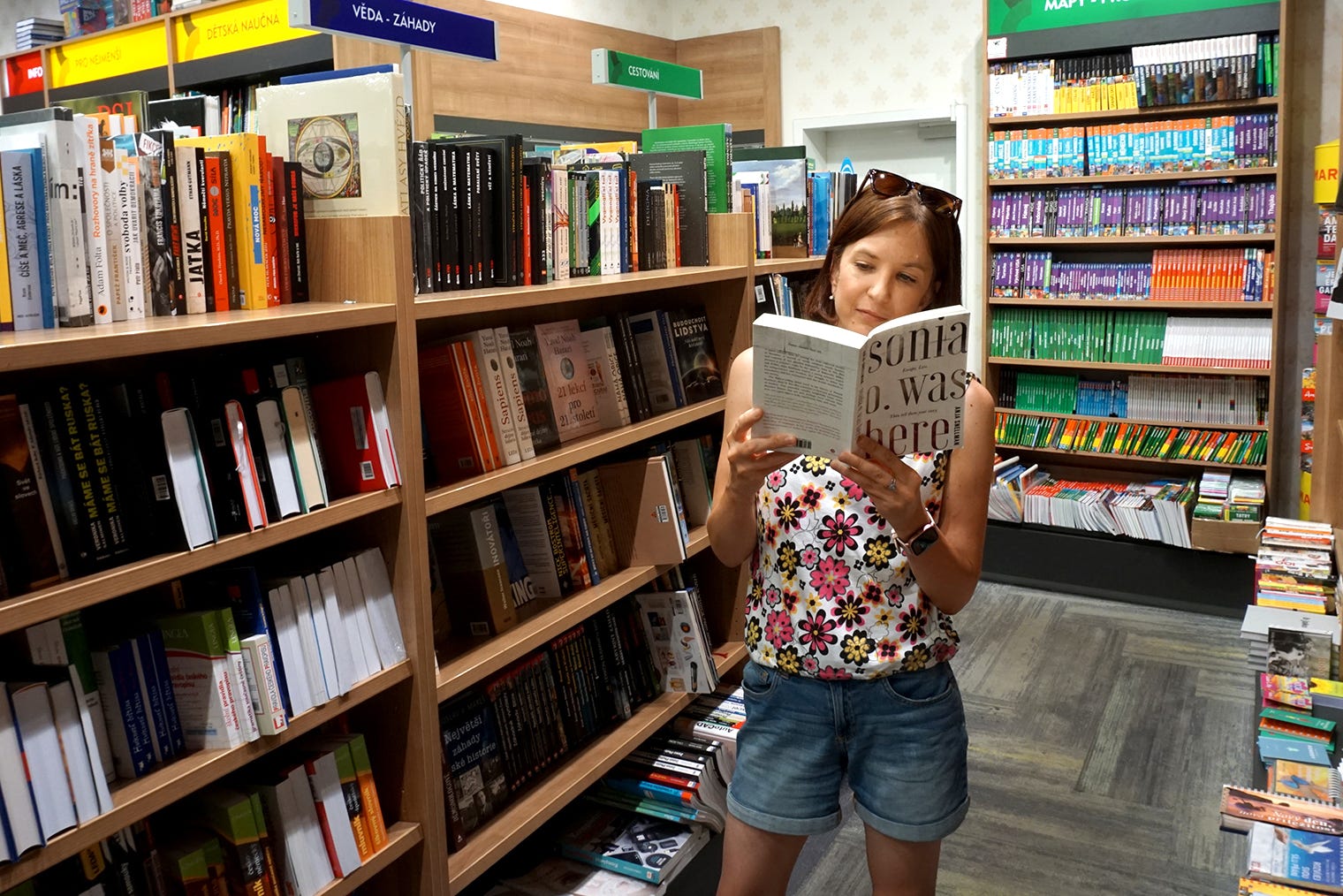
David Skvara
WOMEN IN TRANSLATION
The Story of Sonia O. in Czech
A young woman’s search for identity is an eternal theme around the world. Sonia O. Was Here left a strong impression on Marketa Hejkalova, who went on to translate the book into Czech in the 1980s. However, the book was not approved for publication until after the collapse of communism in the early 1990s.
How did you decide to translate Sonia O. Was Here?
I studied Finnish language and culture at the University of Prague in the early 1980s. In the summer of 1983, I attended a course at the University of Helsinki. At the time, everyone was talking about Anja Snellman’s [then Kauranen] debut novel, which had become a huge success. We were given a presentation about the book during a lecture.
I became intensely interested in the book. I had read Finnish literature earlier, mainly works by male authors. Their books dealt with the realities of tough life in rough but beautiful nature—a theme that was not very relatable to this young woman. Reading Sonia O. Was Here was a revelation: I felt like it was a book about me as much as it was the story of Sonia. In the book, sex was part of life, and it was also something you could write openly about.
I translated the book and submitted the translation to a publisher, but my submission was rejected. At that time in communist Czechoslovakia, it was very difficult to find a publisher for a book like Sonia O., because sex and any criticism of communism were strictly prohibited topics, as was Karelia, the region Finland had ceded to the Soviet Union during World War II.
Why do you think the book continues to be relevant?
In my opinion, every book is somewhat tied to its country and era, but Sonia O. Was Here is also universal and timeless. A young woman’s development and search for identity and her place in a male-dominated world are eternal themes around the world. These themes are currently discussed in the context of the Me Too movement, for example.
What was the translation process like?
The process was very difficult for a fledgling translator. I encountered three major problems: the Karelian dialect, the Helsinki slang, and Finnish names, cultural figures, and literary references.
The challenge posed by the Karelian dialect was alleviated by the fact that Czech is a Slavic language and the Czechs understand some Russian. For example, I didn’t need to explain babushka or dedushka.
Then again, the Helsinki slang was a real problem. At first, I tried to translate the expressions into Brno slang, but then realized that no one in Prague would understand them. I eventually came up with a general Czech slang of my own.
I also remember giving serious thought to Sun Maid raisins. I thought the name reflected something mystical related to the Maiden of the Sun or something along those lines, but then I learned it was just an ordinary brand name.
Today, in this era of Google and email, the translation process would be much easier. When I translated the book back in the 1980s, I only had access to a dictionary of modern Finnish slang. But translating the book was fascinating, and I learned a great deal.
Did Sonia O. Was Here differ from other books you have translated?
Sonia O. Was Here was my first translation of a work of Finnish literature. I had previously translated Russian poetry. After Sonia O., I translated entirely different types of Finnish literature, such as works by Mika Waltari and Arto Paasilinna.
I became an author myself, so I no longer wanted to translate literature written by women. I was afraid that the translations would have too much of an impact on my own books.

Marketa Hejkalova
Marketa Hejkalova is the founder of the Autumn Book Fair, the second-largest book fair in the Czech Republic. The book fair is based in her home town of Havlickuv Brod.
Hejkalova runs a publishing company, Hejkal, with her husband. In addition to publishing her novels, the company releases translations of Finnish literature.
Between 1996 and 1999, Hejkalova worked as a diplomat, cultural attaché, and consul at the Czech Embassy in Finland. She has written eight novels, a children’s book and three works of nonfiction, including a biography of Mika Waltari. Many of her books are related to Finland.
Marketa Hejkalova was interviewed by Suvi Huttunen
Photo by Eva Puella





